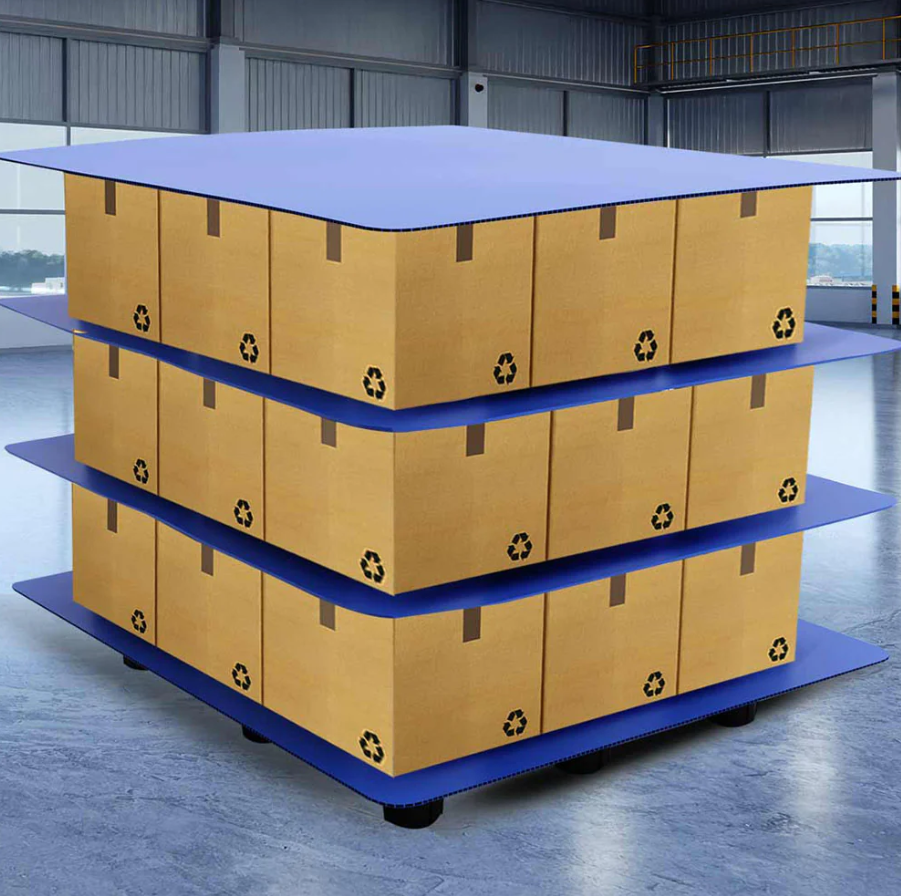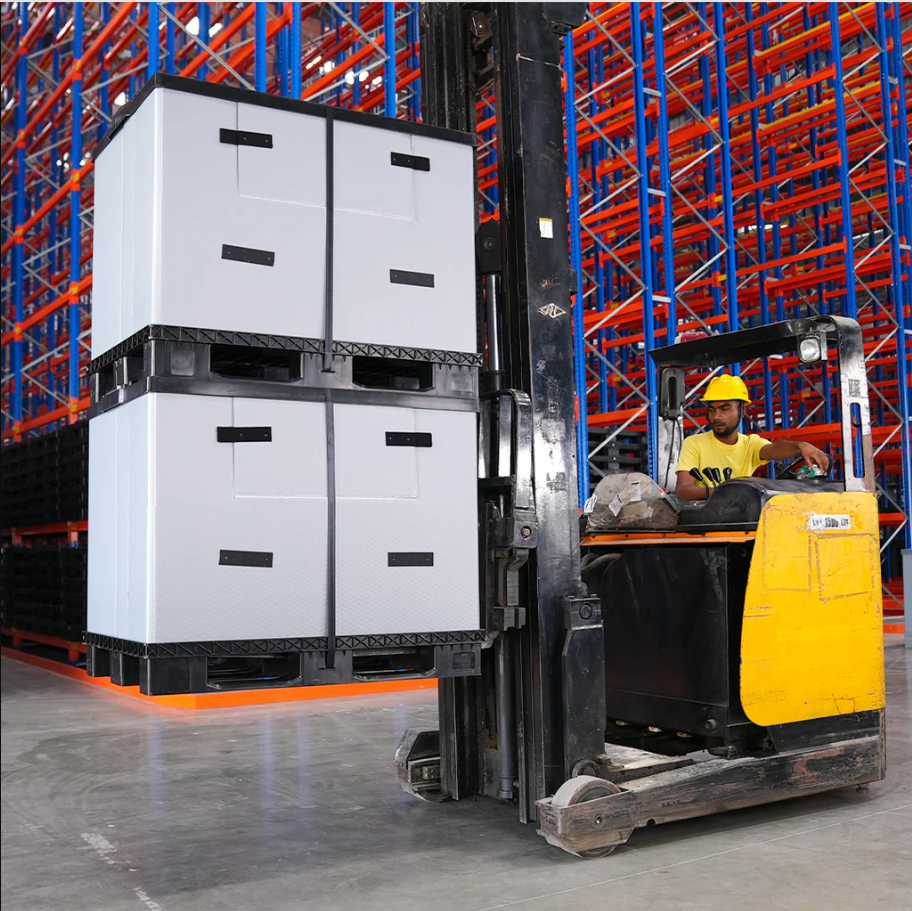
In the world of logistics and material handling, efficiency, space optimization, and sustainability are not just goals—they’re necessities. Among the many innovations reshaping the way goods are stored, shipped, and managed, the foldable container has emerged as a quietly transformative solution. From warehouses and factories to retail distribution and even e-commerce operations, foldable containers offer a compelling alternative to traditional rigid packaging and storage systems.
But what exactly makes a foldable container so valuable in today's fast-paced industrial and commercial ecosystems? Let's delve into what they are, their benefits, use cases, and why industries are increasingly choosing foldable solutions over conventional ones.
What is a Foldable Container?
A foldable container is a storage or transport unit designed to collapse into a compact form when not in use. These containers are typically made from durable materials like high-density polyethylene (HDPE), polypropylene, or engineered plastics, and sometimes feature metal reinforcements depending on the load requirements.
The main appeal lies in their ability to be expanded for use and collapsed for return or storage. This dual functionality significantly reduces the space required during reverse logistics or downtime, translating to cost savings and improved operational efficiency.
Key Advantages of Foldable Containers
1. Space Efficiency
One of the standout advantages of a foldable container is its space-saving capability. When empty, it can be folded down to a fraction of its expanded size, allowing businesses to reclaim valuable storage or shipping space. In supply chains that involve returnable packaging or reverse logistics, this feature can lead to significant reductions in transportation costs.
2. Reusability and Durability
Unlike disposable or single-use packaging materials, foldable containers are built to last. Their reusability makes them an excellent choice for businesses looking to minimize waste and reduce their carbon footprint. Depending on the material and construction, a foldable container can withstand hundreds of cycles of use, making it a highly sustainable investment.
3. Ease of Handling
Most modern foldable containers are designed with ergonomics and user-friendliness in mind. They often come equipped with features such as integrated handles, interlocking bases, and side-access doors for easy loading and unloading. Some models are even compatible with forklifts or pallet jacks for more seamless movement in industrial settings.
4. Modularity and Customization
Foldable containers come in a range of sizes and can often be tailored to meet specific industry requirements. Whether you're storing automotive parts, textiles, or pharmaceutical goods, the modularity of these containers allows for efficient organization and product protection.
5. Improved Hygiene and Safety
For industries with strict cleanliness standards—like food and pharmaceuticals—foldable containers can be designed to meet hygiene regulations. Smooth internal surfaces, water resistance, and easy-to-clean designs ensure product integrity and worker safety.
Common Applications Across Industries
Foldable containers are used in a wide array of industries, each with unique logistical and operational challenges. Here are some notable sectors where they’ve made a significant impact:
• Automotive
Foldable bulk containers are widely used to transport auto parts like engines, bumpers, or wiring harnesses between suppliers and assembly plants. Their returnable nature cuts down on packaging waste and reduces shipping costs.
• Retail & E-commerce
In retail supply chains, foldable containers streamline the delivery of goods from distribution centers to stores. When empty, they can be folded and returned efficiently, cutting costs associated with backhauling.
• Textiles
Textile manufacturers often use foldable containers as protective interlayers or bulk carriers for fabric rolls, yarns, or garments. Their stackability and protective design help minimize damage during transit.
• Agriculture
Farmers and food distributors use foldable plastic bins to collect, transport, and store fruits and vegetables. Their collapsible feature is especially useful during off-seasons when storage efficiency becomes essential.
• Manufacturing & Warehousing
Whether for storing components on production lines or organizing goods in a warehouse, foldable containers offer modular and mobile solutions that can adapt to dynamic operational needs.
Sustainability: A Growing Concern
As businesses face increasing pressure to adopt eco-friendly practices, the foldable container provides a practical step toward greener logistics. Its long lifecycle reduces the need for frequent replacements, and its collapsibility contributes to lower fuel usage during transportation by maximizing load density. Some manufacturers even offer containers made from recycled materials, further enhancing their environmental appeal.
Considerations Before Investing
While foldable containers bring multiple benefits, there are a few factors businesses should assess before adopting them:
Weight Load Capacity: Ensure the container is rated for your specific product weights.
Material Compatibility: Choose a material that withstands the environmental conditions and usage patterns of your industry.
Stackability and Interlocking Features: For better storage and safety, opt for containers that offer secure stacking.
Cleaning and Maintenance: Containers used in hygiene-sensitive industries should be easy to clean and resistant to contamination.
Conclusion
In an era where every inch of space and every dollar of operational efficiency matters, the foldable container represents a practical, scalable solution for modern logistics. It reduces waste, saves space, optimizes supply chain efficiency, and contributes to sustainability goals. From automotive plants to retail backrooms, it has proven its worth in a variety of environments—and it’s only growing in popularity.
Whether you're a supply chain manager, warehouse supervisor, or business owner looking to streamline your operations, exploring the use of foldable containers could be the key to unlocking better logistics and a more sustainable future.




















Write a comment ...